May 14, 2025 | 03:25 GMT +7
May 14, 2025 | 03:25 GMT +7
Hotline: 0913.378.918
May 14, 2025 | 03:25 GMT +7
Hotline: 0913.378.918

Deputy Minister Phung Duc Tien chaired the meeting. Photo: Pham Hieu.
On September 16, Deputy Minister of Agriculture and Rural Development Phung Duc Tien held a conference on a variety of issues related to chicken meat exports.
According to the agricultural sector's head, the Covid-19 pandemic has devastated Southern regions and towns, occupying and seriously affecting the poultry production industry.
He addressed the issue: "The size of the country's industrial chicken flock is believed to be about 140 million heads in a single year." While it takes just over a month to grow chickens, they may be processed and eaten."
According to a report by the Department of Animal Health (DAH) on processed chicken meat exports from Vietnam to other countries, Japan approved the shipment of processed chicken to Vietnam's Koyu & Unitek business in June 2017. Since then, the business has exported processed chicken products to Japan on a monthly basis of about 250-300 tons.
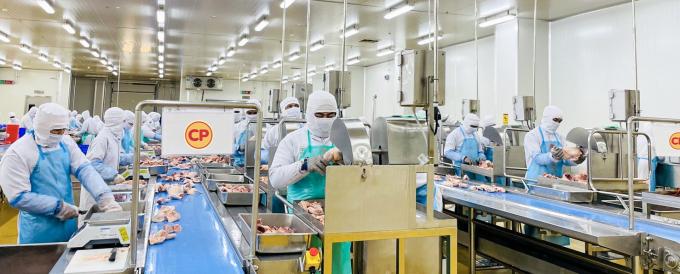
In recent years, processed chicken products of C.P. have been allowed to import by many countries. Photo: CPV.
On October 16, 2018, the Japanese DAH approved the import of processed chicken meat from Food Processing Plant Hanoi, which is affiliated with CP Livestock Joint Stock Company (CP Vietnam).
The Hong Kong Department of Animal Health authorized the importation of processed chicken from Vietnam on October 2, 2019, including from CPV Food Co., Ltd (a subsidiary of C.P Vietnam Company) in Binh Phuoc.
The Federal Service for Veterinary and Phytosanitary Surveillance approved the import of processed chicken products from C.P. Vietnam's Hanoi meat processing plant on March 5, 2020.
On June 18, 2021, the Federal Service for Veterinary and Phytosanitary Surveillance renewed CPV Food Co., Ltd.'s license to export processed chicken meat to Russia and the Eurasian Economic Union member nations (including Russian Federation, Republic of Belarus, Republic of Kazakhstan, Republic of Armenia and Republic of Kyrgyzstan).
Deputy Minister Phung Duc Tien said that in order to achieve the dual goals of epidemic prevention and socio-economic growth in the current circumstances, units must have customized solutions. While food is plentiful at the moment, there is a potential for shortages in the near future, particularly around the Lunar New Year.
According to the Deputy Minister, the country's agricultural production chain forces presently have a very limited supply of Covid-19 vaccinations.
Binh Phuoc province recently established ideal circumstances for C.P. Vietnam by establishing two feed mills, four slaughter facilities, six hatcheries, ten commercial farms, and one veterinary medicine factory. Thus, he recommended that the province continue to pay attention to and create favorable circumstances for C.P. Vietnam to guarantee future product development and to work closely with the DAH and C.P. Vietnam to establish a disease-free zone since this is a critical element in exports.
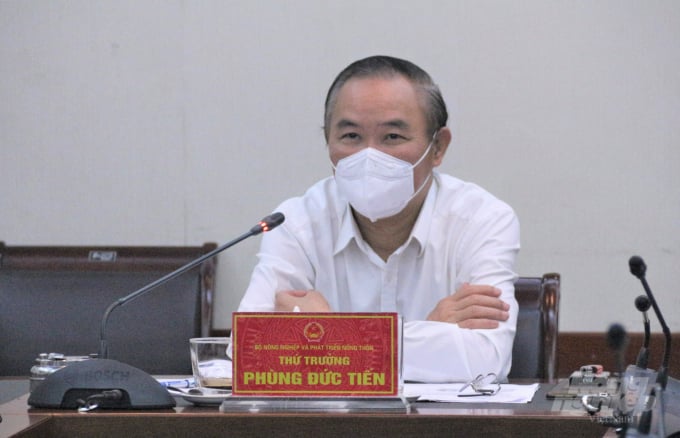
Deputy Minister Phung Duc Tien said that ensuring a disease-free area is a decisive factor in poultry exports. Photo: Pham Hieu.
Tien asked that DAH guarantee the timely establishment of a pandemic-free zone. Trade promotion efforts have already shown preliminary results in the face of a precipitous decline in selling prices. Since a result, it is essential to continue implementing and creating circumstances for C.P. Vietnam, as export is also a means of resolving the backlog of products at the moment.
The Deputy Minister said that the Department of Animal Health should be responsible for disease control on land and in water in order to maintain the viability of the cattle and fisheries sectors.
Deputy Minister Phung Duc Tien said that C.P. Vietnam has been producing in Vietnam for a long period of time and has made many contributions to the livestock and aquaculture sectors via technology, markets, goods, and management. C.P. Vietnam has spent significant resources in large-scale manufacturing chains, but the quantity of goods available now is limited and out of step with capacity.

CP company has been involved in production in Vietnam for a long time and has made many contributions in technology, markets, products and management to the livestock and aquaculture industry. Photo: CPV.
Since then, leaders of the MARD have urged C.P. Vietnam to prioritize three major issues in the coming months: the schedule for constructing hatcheries and commercial farms; close coordination with the DAH and the local community regarding disease-free zones; and an understanding of export market requirements.
Taking advantage of and capitalizing on all poultry export possibilities
According to DAH Director Pham Van Dong, if Vietnam wants to increase exports, it must comply with both the World Organization for Animal Health (OIE) and the market's standards.
The DAH will evaluate the whole market in the next months and develop country-specific consumption strategies to promote exports. Korea, Singapore, Laos, Cambodia, and Myanmar will be the immediate market.
The remaining tough markets will need more planning and preparation time. Simultaneously, tight cooperation between state management agencies and Vietnamese businesses, as well as between state management agencies and enterprises from foreign countries, is essential.
Additionally, the Director of the DAH notified that the export license of the Hanoi meat product processing plant (CP Vietnam Company) for the Japanese market has expired, resulting in the cessation of shipments to this market.
According to Vu Anh Tuan, Deputy General Director of C.P. Vietnam, the Japanese market would be one of the primary objectives for CPV Food Co., Ltd in Binh Phuoc in the future years.
Translated by Linh Linh

(VAN) Use of high-quality broodstock and biotechnology is regarded as the most effective approach to ensuring sustainable and economically viable shrimp aquaculture ahead of climate change and the emergence of increasingly intricate disease patterns.

(VAN) Carbon farming is a form of agricultural practices that helps absorb more greenhouse gases than it emits, through smart management of soil, crops, and livestock.

(VAN) This is a key content of the Memorandum of Understanding recently signed between the Vietnam Fisheries Society and Kunihiro Inc of Japan.

(VAN) To achieve the goal, local authorities and businesses in Kon Tum province have fully prepared the necessary conditions for the new Ngoc Linh ginseng planting season.
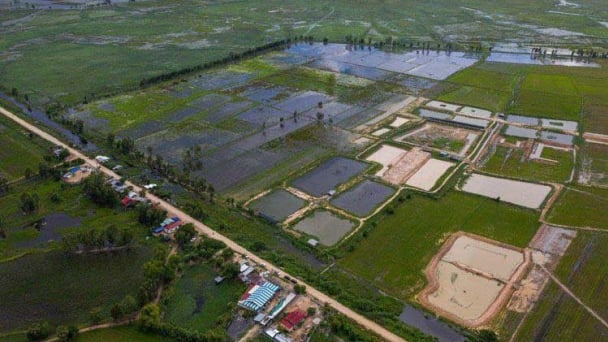
(VAN) Jiangsu province is gearing up to host training programs in Phnom Penh, the capital of Cambodia, this year to establish the Fish and Rice Corridor.
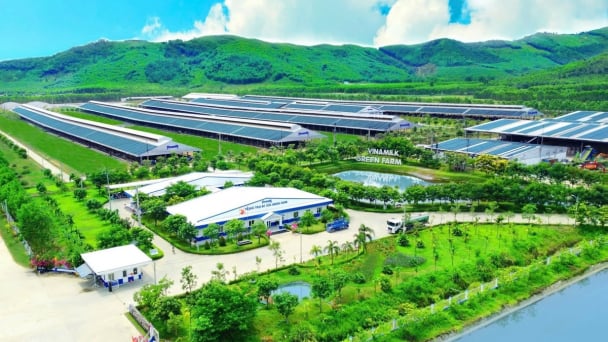
(VAN) Le Hoang Minh, representing Vinamilk, shared the company's experience in energy saving and green energy transition for production at a workshop held during the P4G Summit.
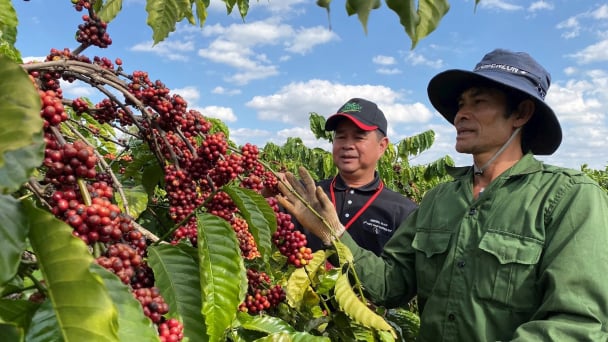
(VAN) Businesses emphasize fairness and equality when integrating social factors into their sustainable development strategies.